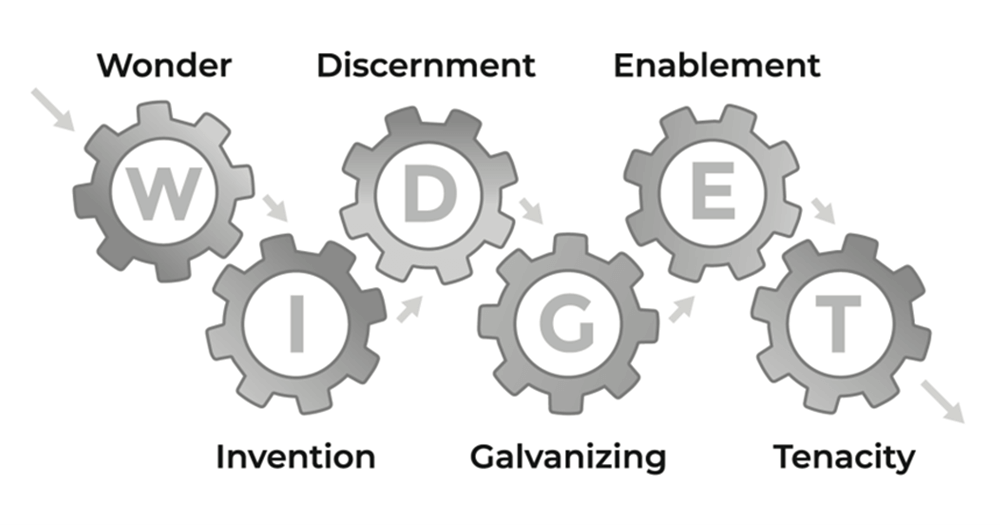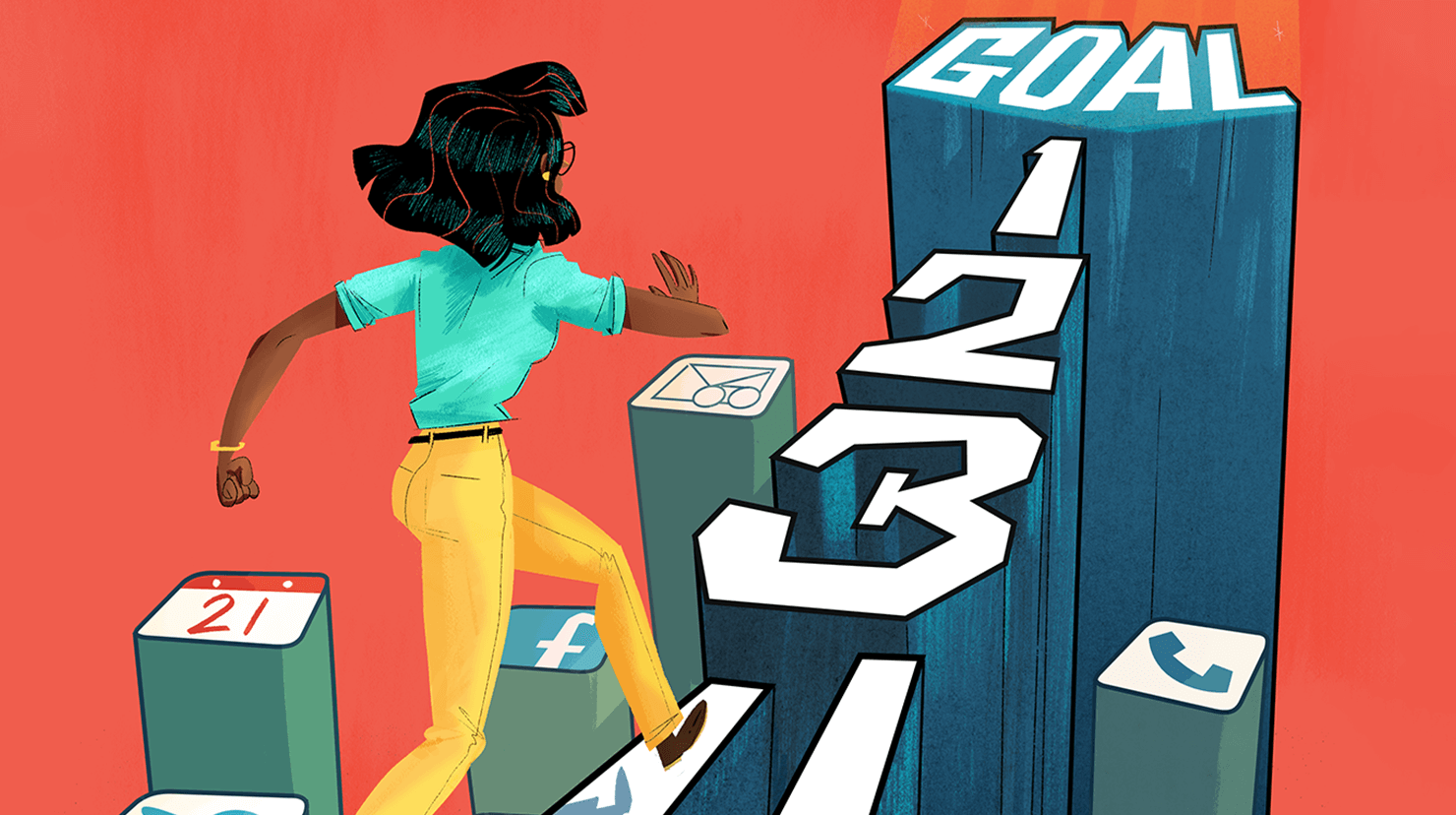
For the past 20 years, best-selling business author Patrick Lencioni would get frustrated at work. He loved his job and the people he worked with, but when he was working on certain tasks he found himself quickly becoming grumpy and didn’t know why.
For example, when Lencioni led a webinar to teach leadership, he absolutely loved the experience. But a recap call about the presentation with the event staff left him tired and cranky. A few minutes later, he had an idea for his podcast, and he was on fire again!
Amy Hiett, the co-founder of Lencioni’s consulting firm, The Table Group, got curious about this recurring behavior, and asked him why he felt so strongly about some of his work. Lencioni’s response: “I don’t know, but I’m exhausted. Half of it frustrates me, half of it I love to do. I wish I knew because I’m really kind of frustrated. And I have been for years.”
Maybe you’ve had this feeling too. You wish you could do more of X, less of Y, and absolutely none of Z. Most likely you shrug it off. After all, that’s why it’s called “work,” and that’s why they pay you. Besides, it must get done.
Lencioni and Hiett began exploring the different types of work and identified six work elements required in any kind of activity. This became the basis of Lencioni’s latest book, The 6 Types of Working Genius.
The duo broke the six types of work required for every task into “geniuses”—having a natural gift of:
- Wonder – Pondering the possibility of greater potential and opportunity in a given situation.
- Invention – Creating original and novel ideas and solutions.
- Discernment – Intuitively and instinctively evaluating ideas and situations.
- Galvanizing – Rallying, inspiring, and organizing others to take action.
- Enablement – Providing encouragement and assistance for an idea or project.
- Tenacity – Pushing projects or tasks to completion to achieve results.
Whether you’re working on launching a product, organizing a Toastmasters event, or planning a vacation, Lencioni found that every job needs the six identified geniuses to create great results.
The Geniuses in Practice
I’ve spent close to 30 years helping companies teach their people how to facilitate and lead teams. I’ve seen time and time again that these “genius” concepts can help all teams be more productive and have a higher level of satisfaction.
All ideas, concepts, and projects start with someone who is curious about the world. They wonder why things happen and angst over unrealized potential in people, initiatives, and the company as a whole.
While those with the genius of Wonder ask “why,” those with the genius of Invention solve for “how,” since people with this genius are innately good at finding solutions for problems.
Though each and every one of us are able to do all six genius elements, some are better than others at particular geniuses.
Those with the genius of Discernment provide feedback to the Inventor, who goes through an iterative process of tweaking it and getting it right.
While the Discerner says, “This is an awesome idea,” it takes more than a good idea to deliver on its potential. It takes a team. Somebody needs to rally people around a cause. Galvanizers get energized by a good idea, latch on to it, and sell it.
Once the idea has taken shape, those with the genius of
Enablement ride alongside the galvanized idea. They are the selfless “team players” who get great satisfaction in helping and supporting others, and seeing things done right.
Finally, there are the finishers with the Tenacity genius, those with the energy, talent, and drive to get things across the goal line.
All six types of working geniuses are required for getting work done successfully. And we all have working geniuses, competencies, and frustrations.
- Working genius: Your natural ability that brings you energy, joy, and fulfillment. Think of this as your “flow state.” You could do this kind of work forever and because you love that kind of work, you usually gravitate toward it and are pretty good at it.
- Working competency: You can do this type of work well (and may get lots of positive reinforcement about it), but you are not completely joyful nor completely miserable with this kind of work. Over time, this drains your energy and productivity.
- Working frustration: You dislike doing this type of work and find it draining, even if you are capable of it. For many of us, our working frustrations are the source of a lot of guilt and judgment because we feel bad about not being competent or eager to help in particular areas of work. Though you can’t always avoid those areas, you can try to minimize the time you have to spend on those tasks. But again, if you don’t know what those deficiencies are, you can’t minimize them.
Though each and every one of us are able to do all six genius elements, some are better than others at particular geniuses. Recognize when you are working in each element and reinforce those activities that bring you joy. You can try to minimize your areas of working frustration by finding out if someone else on your team enjoys that type of task, delegating to others (if you’re the one in charge), outsourcing it, or eliminating it.
For example, my working geniuses are Discernment and Tenacity. I continually evaluate ideas and situations, bringing years of team process and business knowledge to my thought processes. Unfortunately, in a team environment, I rush to “get it done” to help and support others without tapping into my Enablement competency or frustration around Galvanizing and sharing my vision with others. Ironic, isn’t it?
Speaking about the impact of the working genius theory, Lencioni reflected, “Many people attribute their failures and struggles to having a bad attitude, not being smart enough, or making bad decisions. When people realize they have certain areas of genius, and other areas of frustration, they can attribute their struggles to the lack of alignment between their geniuses and their role. This reduces their sense of guilt and shame and allows them to move into work that provides a better chance of fulfillment and success.”
To determine your geniuses, competencies, and frustrations, think about each category. Ask your family, friends, and colleagues to help you identify your gifts and limitations. For a fee, you can take the online Working Genius Assessment to confirm your findings and maximize your satisfaction and contribution in your work and life.
The Working Genius and Teams
Since no one person can embody all six geniuses, teams use the Working Genius model to find immediate impact on their productivity and morale. If you’re a manager or project owner, you can use this model and tap into each of your team members’ working geniuses when staffing and making assignments.
By knowing what is needed for each phase of the team’s task, you can minimize people’s frustrations and be cognizant to not overburden those who are less skilled in that particular phase.
The Working Genius model also gives a framework to discuss how the team wants to do its work and to reduce the guilt and shame that come along with operating outside of your working genius.
For example, a manager was frustrated with what she thought was a lack of creativity from one of her direct reports. Her team took the Working Genius Assessment, and she realized that this Enablement-Tenacity team member was plenty creative in his genius areas—supporting and helping others to complete myriad tasks and getting his own work done. His working frustration was in the Wonder-
Invention phase (pondering and creating novel solutions), which the manger confused with lack of creativity.
In this case, the manager realized that she didn’t need a “new idea” guy—she had plenty of those on her team—but she did need this team member who could take that idea and bring it across the finish line!
Imagine if every company, every organization, every team knew the areas of genius, competency, and frustration of their people and organized them for success. And imagine if every parent knew those areas of genius for their spouse and children. It’s not an exaggeration to say that there would be more joy and less misery in society.
But that happens one person at a time. And that person might as well be you. What are your areas of genius?
Kristin Arnold is a professional meeting facilitator who challenges leaders and their teams to achieve extraordinary results—especially when the stakes are high. Find out more at extraordinaryteam.com.
Related Articles

Personal Growth
How To Succeed in the New Corner Office

Personal Growth



 Previous
Previous

 Previous Article
Previous Article